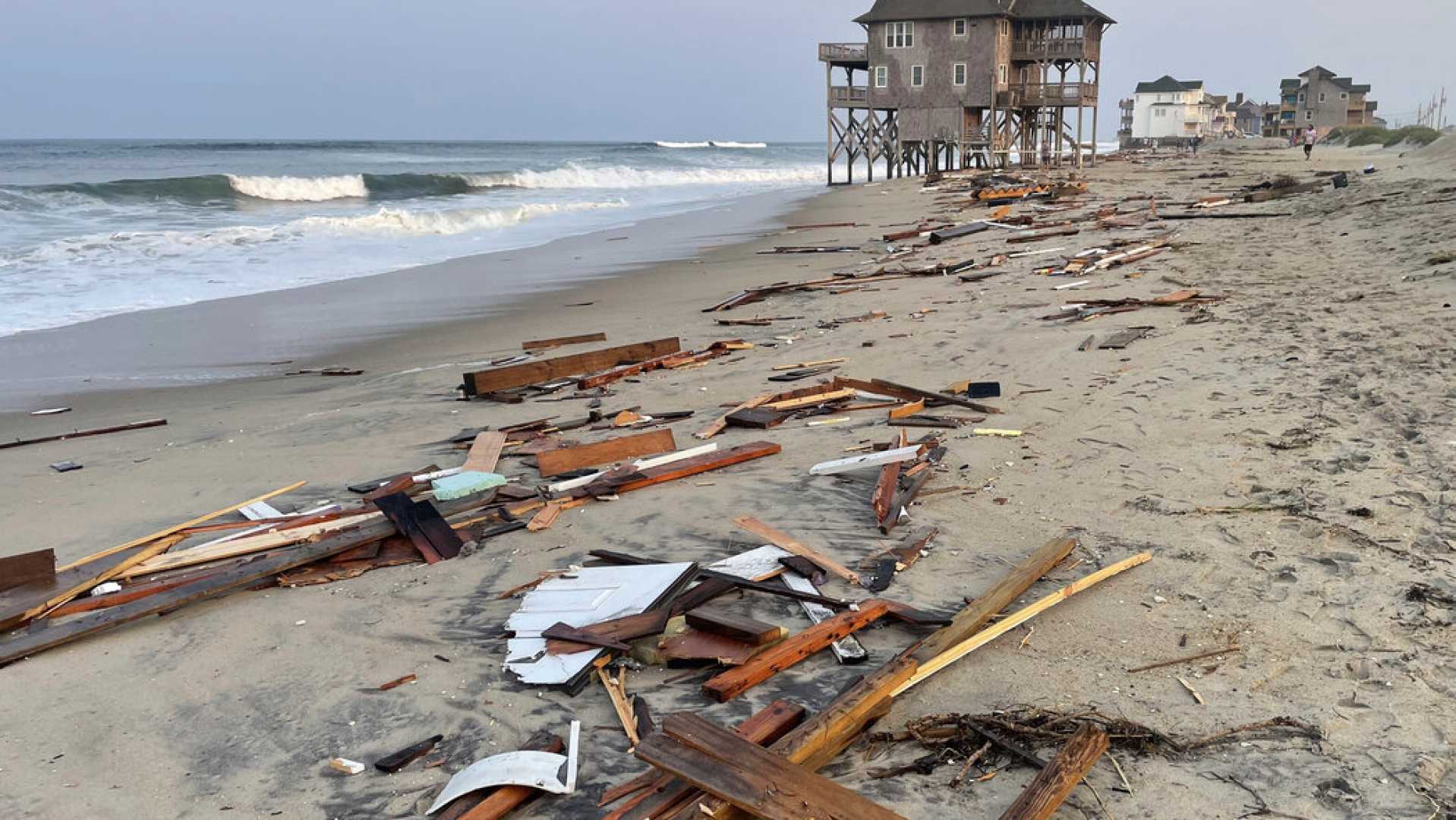News
Coastal Erosion Leads to Housing Collapse in Rodanthe, North Carolina

In the coastal village of Rodanthe, located on North Carolina‘s Outer Banks, a series of collapses has seen three homes succumbing to the Atlantic Ocean in less than a week. According to the National Park Service, the latest incident occurred on Tuesday when an unoccupied home was claimed by the sea. This event marks the third such collapse since Friday on Kohler Court.
The area has been increasingly burdened by issues stemming from severe coastal erosion. The National Park Service has explicitly warned against entering the waters around the villages of Rodanthe, Waves, and Salvo due to “a large amount of hazardous floating debris being transported by the waves.” Visitors in the vicinity have been advised to wear protective footwear because of the potential presence of “nail-ridden wooden debris,” emphasizing the dangers posed by such materials in the water.
This phenomenon is not unprecedented in the region. Since 2020, nine other homes have faced similar fates, with two additional homes collapsing earlier this year. The properties, traditionally elevated beach-style homes built on pilings, are increasingly threatened due to ongoing erosion. As ocean waters now regularly inundate these properties, former dune and sand-covered territories are disappearing.
“During severe weather events, which are frequent on the Outer Banks, privately-owned oceanfront houses in vulnerable areas face strong winds and large waves,” states an official release from the service. Erosion has become a formidable challenge, with parts of barrier islands retreating over 200 feet in just two years, as reported by the National Park Service.
Residents and experts attribute the erosion to various factors, including climate change which intensifies weather events and contributes to sea-level rise. “The ocean’s coming for you,” remarked resident Jim Hartshorne to CBS News, summarizing the precarious situation faced by residents.
David Hallac, superintendent of the Cape Hatteras National Seashore, indicated that while relocating homes further inland was more common in previous decades, adaptations to the dynamic nature of barrier islands have diminished. Historically, structures like the Cape Hatteras Lighthouse were relocated to mitigate encroaching sea levels.
Efforts to address the escalating problem include potential large-scale beach nourishment projects, projected to be costly for the small village of Rodanthe. Noah Gillam, Dare County‘s planning director, emphasized the challenge, noting that many homes were initially compliant with setback regulations, but “erosion has sped up,” moving the ocean dangerously closer to communities.
North Carolina U.S. Representative Greg Murphy has supported legislative efforts that would allow federal flood insurance funds to be allocated to assist in either demolishing or relocating threatened homes. Braxton Davis, executive director of the North Carolina Coastal Federation, underscores that such challenges extend beyond North Carolina, affecting other parts of the United States as well. “This is a national issue,” Davis noted, highlighting rising sea levels as a worsening factor.












